
Can Dogs Eat Apples?
|
|
Time to read 7 min
|
|
Time to read 7 min
Many pet owners wonder whether it's safe to share this juicy fruit with their furry friends. Well, the answer is a resounding yes!
In this article we will discuss the following:
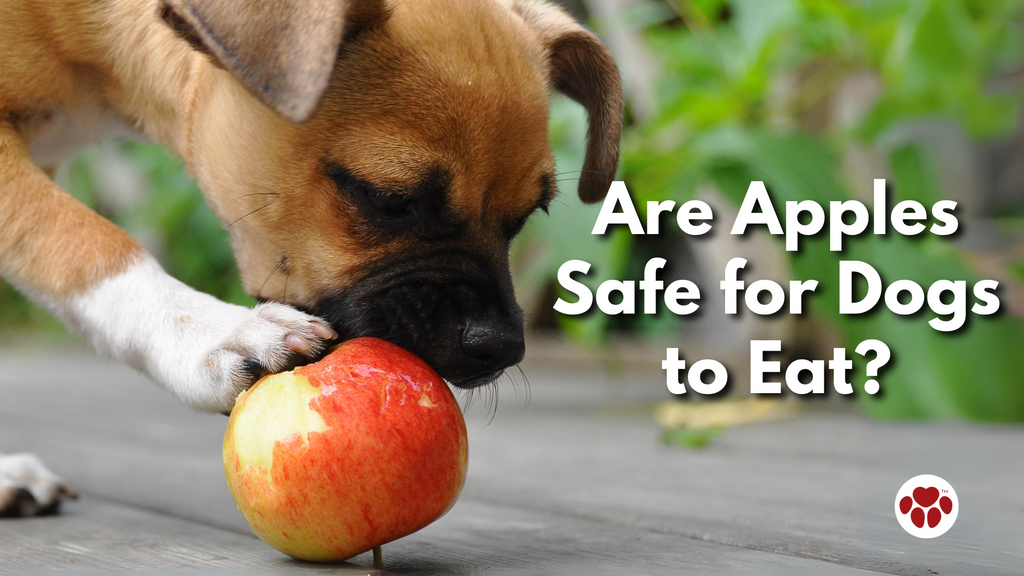 Are Apples Safe for Dogs to Eat?
Are Apples Safe for Dogs to Eat?
You may be wondering if it's safe for your dog to eat apples, and the answer is yes, within certain parameters. Apples are packed with essential vitamins, minerals, and fiber, making them a healthy addition to your dog's diet.
They are low in fat and cholesterol-free, making them a perfect snack to keep your pup's waistline in check. Plus, the crunchiness of apples can help clean your dog's teeth and freshen their breath.
However, it's crucial to remember a few things. Make sure to remove the seeds and core, as they can be a choking hazard for your furry friend. The seeds of apples contain cyanide, which is toxic to dogs in large amounts. While a few seeds may not cause harm, it's best to err on the side of caution and remove them entirely.
Additionally, the core of the apple can be difficult for dogs to digest and may cause choking or gastrointestinal issues. It's always best to remove the core before feeding your dog apples.
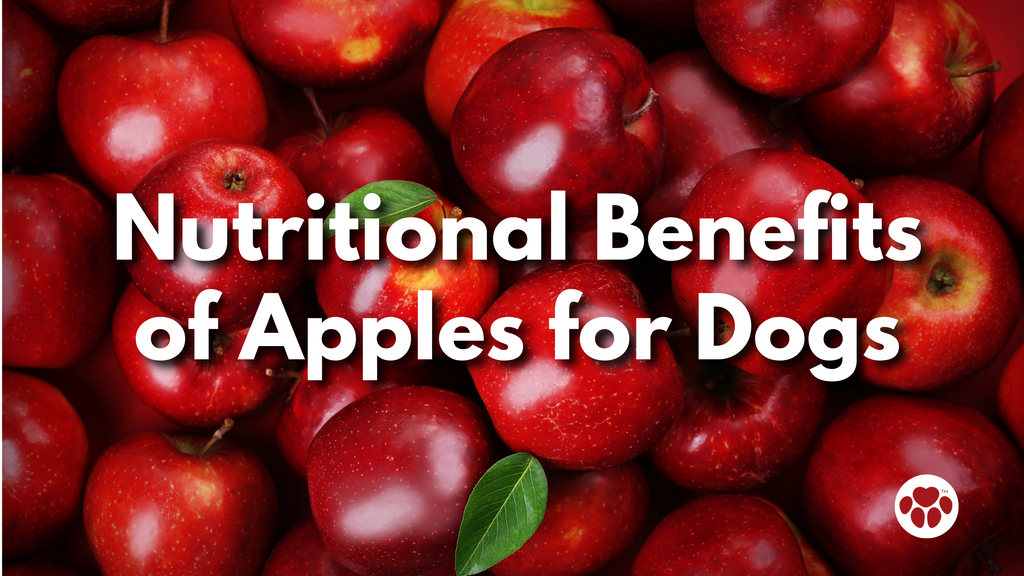
Apples offer a range of nutritional benefits for dogs, making them a healthy choice for a snack or treat. They are a good source of dietary fiber, which can aid in digestion and promote regular bowel movements. The fiber in apples can also help regulate blood sugar levels in dogs, making them a suitable choice for diabetic dogs.
In addition to fiber, apples contain essential vitamins such as vitamin A, vitamin C, and vitamin K. These vitamins play a vital role in supporting your dog's overall health and well-being.
Vitamin A promotes healthy vision, while vitamin C boosts the immune system and helps protect against illnesses. Vitamin K is essential for blood clotting and bone health. By incorporating apples into your dog's diet, you can help ensure they receive these necessary vitamins.
Apples also contain minerals like calcium, potassium, and phosphorus, which are crucial for maintaining healthy bones, muscles, and overall bodily function. These minerals work together to support your dog's growth, development, and overall vitality.
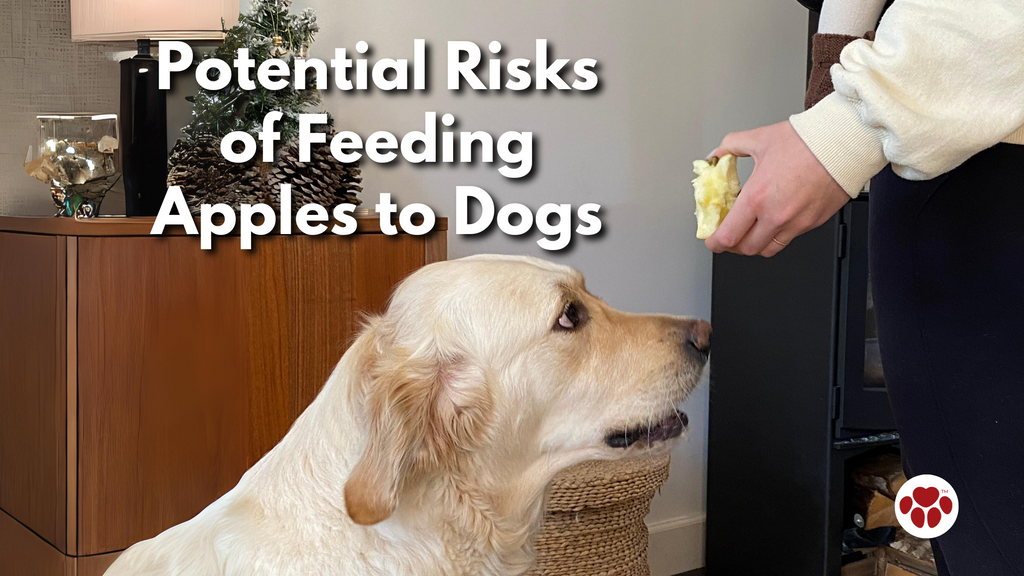
While apples are generally safe for dogs to eat, there are a few potential risks that pet owners should be aware of. First and foremost, as mentioned earlier, the seeds and core of apples can be hazardous. These parts of the fruit can cause choking or digestive issues if ingested by your dog. It's essential to remove the seeds and core before feeding apples to your furry friend.
Another risk to consider is the high sugar content in apples. While natural sugars found in fruits are generally better for dogs than artificial sugars, it's still important to monitor your dog's intake. Too much sugar can lead to weight gain, dental problems, and even diabetes in dogs. Moderation is key when feeding apples or any fruit to your dog.
Lastly, some dogs may be allergic to apples. Although rare, it's possible for dogs to have an allergic reaction to apples. Signs of an allergic reaction may include itching, redness, swelling, or gastrointestinal upset. If you notice any of these symptoms after feeding your dog apples, it's best to consult with your veterinarian.
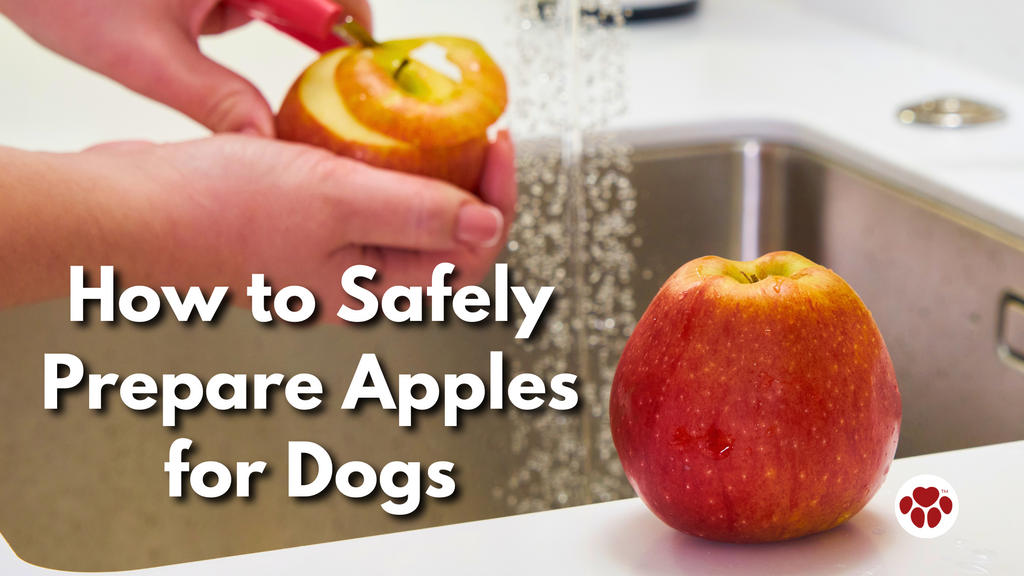
To ensure the safety of your dog while enjoying apples, proper preparation is essential. Start by choosing fresh, organic apples whenever possible, as they are free from pesticides and other harmful chemicals. Wash the apple thoroughly to remove any dirt or residue.
Next, remove the stem, seeds, and core. Cut the apple into small, bite-sized pieces that are easy for your dog to chew and swallow. Remember, the smaller the pieces, the less chance of choking or digestive issues.
If you prefer, you can also peel the apple before feeding it to your dog, although the skin contains additional nutrients and fiber. Just make sure that it is thoroughly cleaned.

When it comes to serving apples to your dog, moderation is key. While apples are a healthy treat, they should be given in moderation to avoid any potential health issues. The recommended serving size depends on the size and weight of your dog.
For small dogs weighing up to 20 pounds, a few apple slices per week should suffice. Medium-sized dogs weighing between 20 and 50 pounds can enjoy a few slices a few times a week. Larger dogs weighing over 50 pounds can have slightly larger portions, but it's still important to limit the amount.
Remember, apples should be given as a treat or supplement to your dog's regular diet. They should not replace balanced and complete dog food.
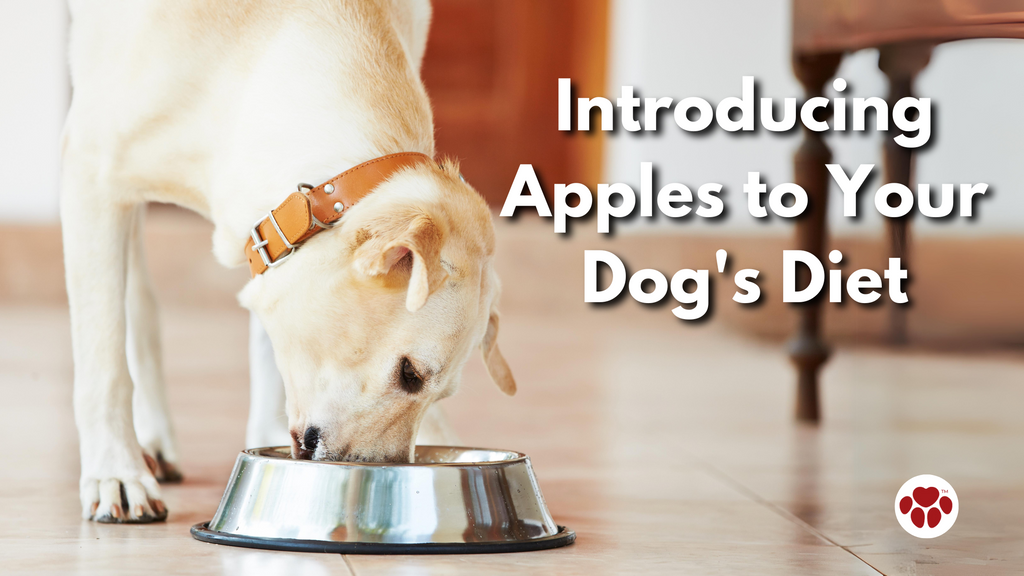
If your dog has never tried apples before, it's important to introduce them gradually to their diet. Start by offering a small piece of apple and monitor your dog's reaction. If there are no adverse effects, you can gradually increase the amount over time.
Some dogs may have a sensitive stomach, so it's essential to watch for any signs of gastrointestinal upset, such as diarrhea or vomiting. If your dog experiences any digestive issues, it's best to discontinue feeding them apples and consult with your veterinarian.
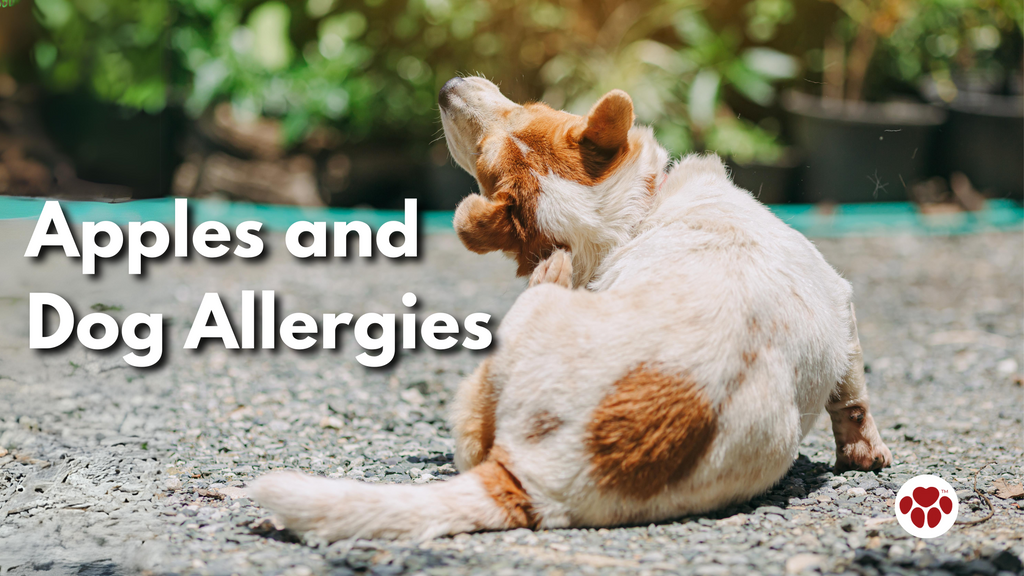
As mentioned earlier, some dogs may be allergic to apples. If your dog has a known allergy to apples or any other fruits, it's best to avoid feeding them apples altogether. Allergies can vary from dog to dog, so it's always important to be aware of any potential allergies your dog may have.
If you're unsure whether your dog is allergic to apples, you can perform a small allergy test. Start by feeding your dog a tiny piece of apple and monitor their reaction. If there are no signs of an allergic reaction, you can gradually increase the amount. However, if you notice any adverse effects, it's best to avoid feeding apples to your dog.
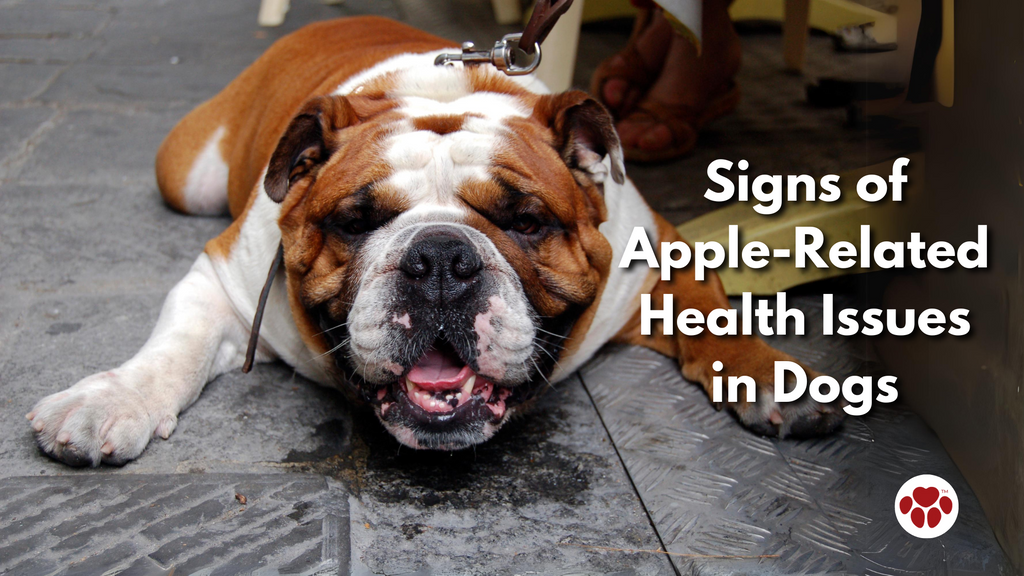
While apples are generally safe for dogs, it's important to be aware of any potential health issues that may arise. If your dog consumes a large amount of apple seeds, they may experience cyanide poisoning.
Symptoms of cyanide poisoning in dogs include difficulty breathing, drooling, dilated pupils, red gums, vomiting, voiding feces and urine, and muscle spasms (Cope, 2022). If you suspect your dog has ingested a large amount of apple seeds, it's crucial to seek immediate veterinary care.
Additionally, some dogs may have difficulty digesting apples, leading to gastrointestinal upset. Signs of digestive issues in dogs include diarrhea, vomiting, and abdominal discomfort. If your dog experiences any of these symptoms after consuming apples, it's best to discontinue feeding them and consult with your veterinarian.
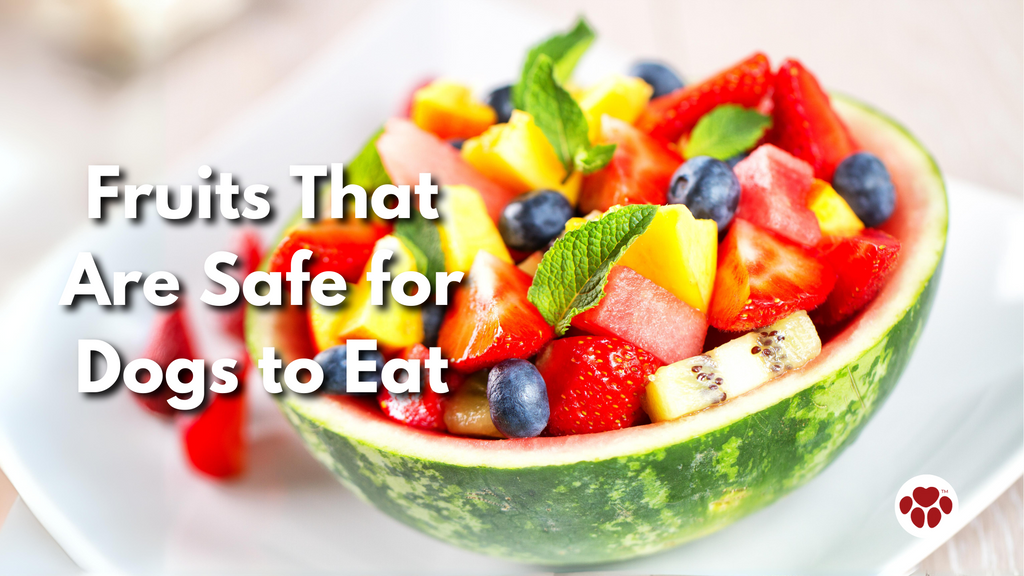
If you're looking to introduce more fruits into your dog's diet, there are several other safe options to consider. Some fruits that are generally safe for dogs to eat include:
Remember, when introducing new fruits to your dog's diet, it's important to start with small portions and monitor their reaction. Every dog is different, and some may have specific dietary restrictions or allergies.
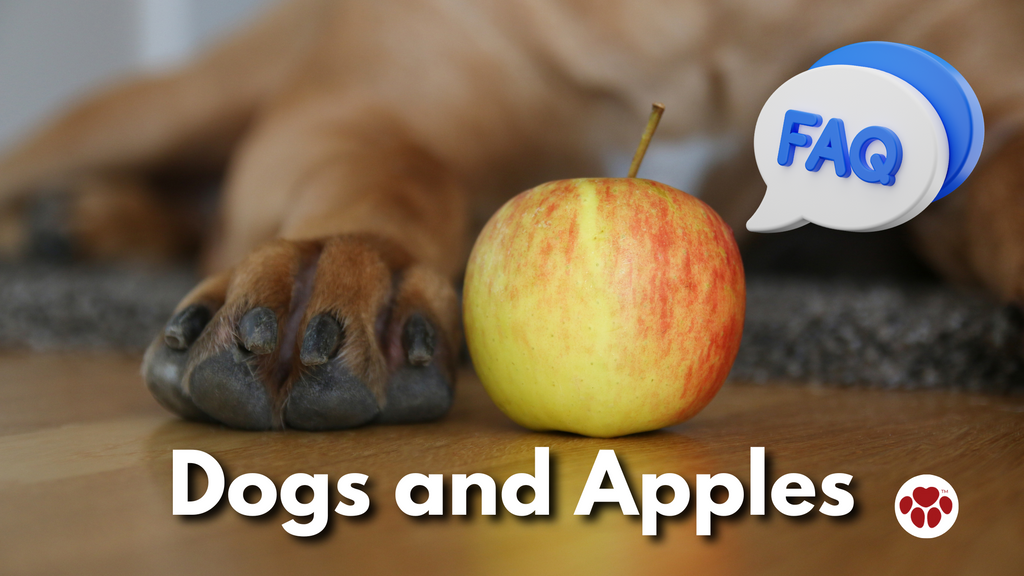
- Yes, dogs can eat apple peels. The skin of the apple contains additional nutrients and fiber. However, it's important to wash the apple thoroughly to remove any pesticides or chemicals.
- Yes, dogs can eat cooked apples. However, it's important to avoid adding any additional ingredients such as sugar or spices. Plain, cooked apples are the safest option for dogs.
- It's best to avoid feeding dogs apple pie or any baked goods that contain apples. These products often contain added sugar, spices, or other ingredients that may be harmful to dogs.
- Yes, dogs can eat plain, unsweetened apple sauce in moderation. However, it's important to check the ingredients to ensure there are no added sugars or artificial sweeteners, which can be harmful to dogs.
- While a few apple seeds may not cause harm, ingesting a large amount of apple seeds can lead to cyanide poisoning, which can be fatal to dogs. It's crucial to remove the seeds before feeding apples to your dog.
In conclusion, apples can be a safe and healthy treat for dogs when prepared and served correctly. They offer various nutritional benefits and can be a tasty addition to your dog's diet.
However, it's important to be mindful of potential risks, such as choking hazards, sugar content, and allergic reactions. By following proper preparation methods and monitoring your dog's reaction, you can safely incorporate apples into their diet and provide them with a delicious and nutritious snack.
So, the next time you're munching on a delicious apple, go ahead and share a slice with your four-legged companion. They'll appreciate the tasty treat and the health benefits that come with it.